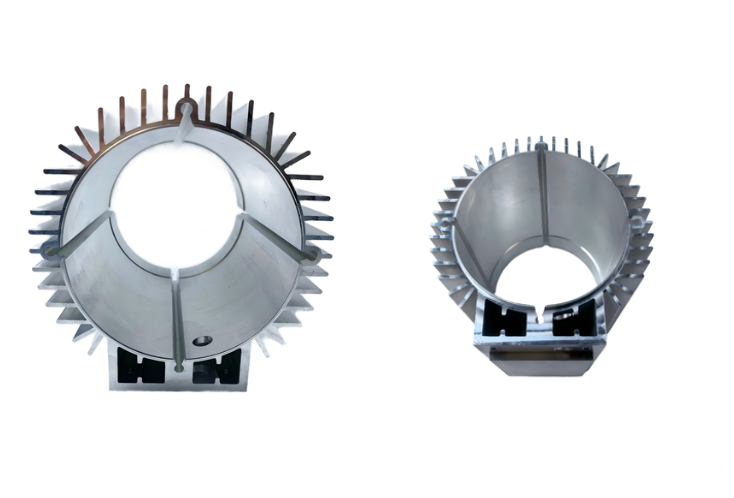
Understanding the Aluminum Motor Housing Manufacturing Process
2025-11-13 17:31Understanding the Aluminum Motor Housing Manufacturing Process

1. Choosing the Right Material
The process begins with aluminum alloy 6063, a material commonly used for extrusion due to its balanced strength, smooth surface quality, and formability. Before processing, the billets go through standard checks such as composition and density testing to ensure consistency.
Key considerations at this stage include:
Material stability during extrusion and machining
Surface quality for later finishing
Compatibility with the motor’s thermal and structural requirements
Heating the billet and pressing it through a precision die forms the base profile that will later be machined into shape.
2. Shaping Through CNC Machining
Once the extruded profile is prepared, CNC machining handles the more detailed work. This step refines the housing, so it meets the mechanical and assembly needs of different motor types.
Typical machining operations include:
3. Surface Treatment for Protection
After machining, the housings receive surface treatment to improve resistance to corrosion and environmental wear. These finishing processes also help maintain temperature stability and surface cleanliness.
Common treatment options include:

Each method serves different usage environments, from humid conditions to high-friction industrial setups.
4. Inspection & Assembly
Before final assembly, the components are measured for:
Dimensional accuracy
Concentricity and alignment
Surface smoothness and coating consistency
Only after passing these checks are additional parts installed, such as mounting brackets or bearing seats. This ensures the housing fits properly in its intended motor system.
5. Use Across Various Industries
Aluminum motor housings are used in a wide range of applications, including:

Their lightweight structure, good heat conduction, and structural stability make them suitable for equipment that runs continuously or under variable load conditions.
A Practical, Process-Driven Component
From raw material to finishing, the manufacturing of an aluminum motor housing is less about a single process and more about how each step affects the next. Consistent extrusion, accurate machining, and appropriate surface treatment allow the final component to perform reliably in different working environments. This combination of controlled steps is what supports the long-term performance of modern motor systems.



